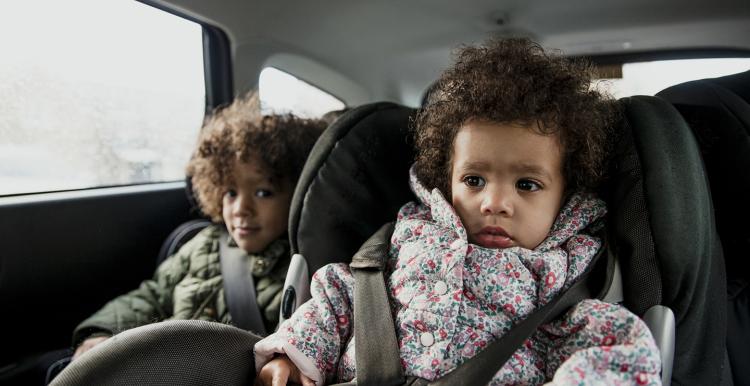Frequently asked questions around childhood immunisations

Ella McGrane is our Childhood Immunisation Outreach Worker. She helps families understand childhood vaccinations. She also addresses the concerns and barriers that can lead to lower uptake. Here she shares some of the questions (and views) that she has heard from families in the borough, and her responses.
I think infection is normal. I’d like to have my child have natural immunity.
In order for your child to get natural immunity your child has to contract these viruses, some of which are very dangerous, and can be fatal. For example, one in five children who contract measles will be hospitalised, and Whooping Cough can be fatal for infants. The immunity you get from vaccines is often as strong as the immunity you would get from contracting the full disease, but avoids risking serious disease. Vaccines offer a safer, more controlled way to build immunity, without the risks.
Is autism linked to MMR?
Lots of research shows there's no link between vaccines and autism. A study in 1998 by Andrew Wakefield wrongly suggested a connection, but it only looked at 12 children and was later proven to be false. The doctor behind it, Andrew Wakefield, lost his medical license for making up data and acting unethically. Since then, many large and careful studies involving millions of children around the world have found no link between vaccines and autism.
Why are more children being diagnosed as autistic recently?
More children are being diagnosed with autism now because we understand it better than we used to. Doctors and teachers are more aware of the signs, and the definition of autism has expanded to include a wider range of behaviours. This means more kids who might have been missed in the past are now getting the help they need. It doesn’t mean more kids have autism — it just means we’re better at recognising it.
Can my baby take all these viruses being injected? I don’t want them to be sick.
Vaccines are extremely safe and serious side effects are rare. Babies and children already fight off a huge number of germs every day. The vaccination only triggers a small amount of their immune system. Sometimes babies might get a little sore where they got the shot or have a mild fever — this is normal and shows the vaccine is working. These small side effects usually go away quickly and can be helped with things like a cool cloth or medicine recommended by your doctor. If parents are concerned, they should contact their doctor or health care provider.
I’ve never even heard of these diseases, why do I need to vaccinate against them?
You might not have heard of these diseases because vaccines have done such a good job at keeping them away. When most people get vaccinated, it’s harder for diseases to spread — this is called herd immunity. But if fewer people get vaccinated, these diseases can come back. For example, measles cases in the UK jumped from 367 to over 2,900 in just one year. Measles isn’t just a rash — it can cause serious problems like pneumonia and brain swelling.
I’d like to delay getting my child vaccinated. I’d like to see how they develop first.
It’s understandable to want to wait, but delaying vaccines can put your child at serious risk. There’s no proof that vaccines affect development, but there is strong evidence that waiting can leave your child unprotected when they need it most. Autism signs often show up around the same age vaccines are given, which can cause confusion — but studies show vaccines are not a cause. The vaccine schedule is carefully planned to protect babies as soon as their natural protection from mum starts to fade, usually around eight weeks. Delaying just gives diseases more time to reach your child.
Vaccines are unsafe, they’re putting random chemicals into your body.
Vaccines generally take 10-15 years to be developed, and then after that it goes through a rigorous testing process where it takes another two years to go through the approval process to make sure that it is safe and effective. 70% of the manufacturing of a vaccine is checking the quality and safety of it.
My baby has already had a vaccine, why do they need a booster/why do they need more?
Think of vaccines like a car seat—just as you protect your baby from dangers on the road by strapping them in before you set off (even if nothing happens most of the time), vaccines protect them from harmful bacteria and viruses that are circulating all around us. We don’t wait for a baby to catch the bacteria/virus before we try to protect them. Each vaccine targets a specific disease, so it’s important to have them all.
Some people think of extra doses as “boosters,” but it’s better to think of them as “doses” of a full course—like finishing a full set of antibiotics to make sure the protection lasts. It’s like baby-proofing your home with plug socket protectors. You wouldn’t just cover one or two outlets; you’d cover them all to keep your child safe. Vaccination works the same way; to have strong, long-lasting immunity, we need all the doses.
My baby was born premature, so I don’t want to get them vaccinated yet.
Your baby is still due their vaccines eight weeks after they’ve been born, due to the immunity the mother has passed on dropping at this stage. If you’re concerned, you should talk to your GP, and they will advise you appropriately.
Why did my child get chickenpox even after they had been vaccinated?
After two doses, the chickenpox vaccine provides around 98% protection in children and about 75% protection in adults. If you get chickenpox after being vaccinated, it is called breakthrough chickenpox and usually involves having a milder infection and being sick for a shorter time, than someone who has not been vaccinated.
Do any vaccines contain animal products?
Only one specific type of MMR vaccine contains porcine gelatine. However, this type of vaccine is not usually used locally. I recommend checking with the healthcare provider when booking the appointment, because they can ensure that you receive one without animal products.


